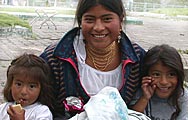A pilot study of the Webster-Stratton Incredible Years Therapeutic Dinosaur School programme
 The Webster-Stratton Incredible Years (IY) Therapeutic Dinosaur School intervention was evaluated in clinically referred children with behavioural disorders. Results suggest that this is an effective intervention.
The Webster-Stratton Incredible Years (IY) Therapeutic Dinosaur School intervention was evaluated in clinically referred children with behavioural disorders. Results suggest that this is an effective intervention.
Introduction
The diagnosis Conduct Disorder (CD) is used to refer to severely disruptive, aggressive and/or destructive behaviour characterised by a repetitive and persistent pattern of anti-social behaviour in children and adolescents with an estimated prevalence between 1.5 and 3.4% (Woolfenden, Williams, & Peet, 2002).
For conduct-disordered children the need to learn and use effective relationship skills in social situations is paramount. Considerable evidence has demonstrated that programmes which enhance parenting skills result in significant improvements in the behaviour of these children (Kazdin, 1995) and parent training is seen as the intervention of choice for these children. However, there is a place for interventions that teach relevant skills directly to children alongside or, when this is not possible, instead of working with parents.
The IY Dinosaur School programme (Webster-Stratton, Mihalic, Fagan, Arnold, Taylor, & Tingley, 2001) is one of a set of interlocking programmes for parents, children and teachers. It was developed as a clinical child-training intervention for small groups of children aged four to eight years. It teaches children to develop more appropriate social and problem solving skills.
Hutchings, J., Bywater, T., Daley, D., & Lane, E. (2007). A pilot study of the Webster-Stratton Incredible Years Therapeutic Dinosaur School Programme. Clinical Psychology Forum, 170, 21-24.